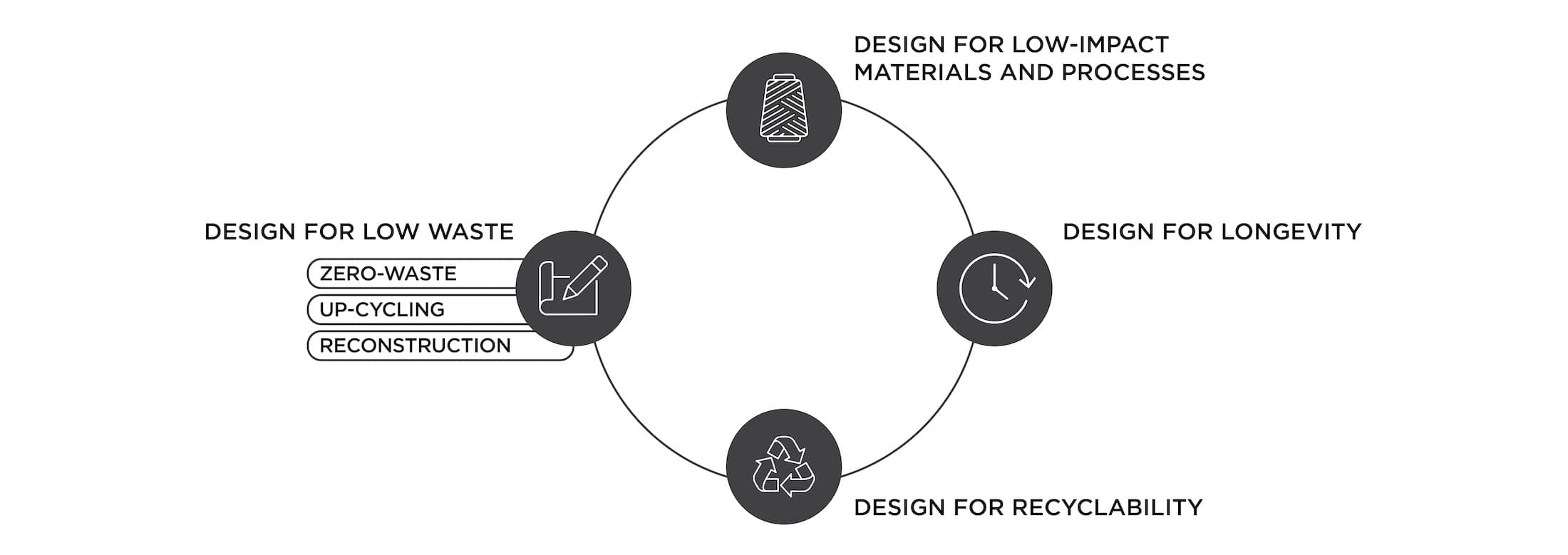I have been a designer for more than 27 years and believe this is one of the most thrilling times to be in our industry. The development of new circular materials that are inspired by nature is an advancement that has sparked my creativity and strengthened my optimism that we can evolve to become a more sustainable world.
Nature-inspired circular materials draw inspiration from natural systems to create materials that are sustainable, efficient, and can be recycled. By advancing this approach we are reducing waste and conserving resources, while still designing with the benefits and beauty of natural materials.
Boston Consulting Group reports that demand for low-climate-impact raw materials could exceed supply as much as 133 million tons by 2030. To address this challenge, we must innovate and diversify the materials portfolio that is available to the market.
To meet this challenge, companies are developing bio-based, semi-synthetic, and plant-based fibers. It has been so cool to see innovation in these areas including the use of mycelium (fungal strands), cork, corn, seaweed, and rice.
We are making great strides–from the creation of bio-based materials, to new recycling technologies, and the adoption of systems thinking across value chains. We are getting better and better at embracing circular materials and taking our inspiration from nature. We are getting smarter about designing with the end in mind to achieve true circularity.

One of the reasons why I choose to build my career at Aquafil Group is because sustainability is a core value and strategic priority for the company. I was a carpet designer for a customer of Aquafil. When I learned about the work they were doing in creating sustainable materials, I was compelled to join the team and be part of the solution.
At Aquafil, we believe in the power of conscious innovation, and have been pioneering solutions for years to deliver products and services with greater performance and less impact on our planet. Our global headquarters is located in Arco, Italy on Lake Garda. When you look out across the lake, you cannot help but be inspired by the nature that surrounds us and prioritize sustainable innovation.
“True innovation happens when we challenge assumptions, measure real impact, and build systems that benefit not just our economy but also our communities and the world around us.”
–Guilio Bonazzi, CEO Aquafil Group

We have developed two new innovations to help tackle our climate and raw materials challenges. First, our engineering team has found a way to separate elastic fibers from nylon, which is a huge breakthrough. When elastic fibers are attached to nylon it makes the material difficult to recover and recycle. With this new technology the industry will be able to recycle more nylon and avoid sending material to landfills.
The second innovation we are introducing at NeoCon this year is new ECONYL® nylon that provides the same beauty and performance characteristics as natural materials including wool, silk, and other raw fibers such as jute. This new ECONYL® Bespoke Collection provides greater wear and tear, cleanability, and is infinitely recyclable.
The World Economic Forum reports that globally, 92 million tons of textile waste is produced each year. Americans alone throw away about 70 pounds of textiles each year, amounting to 17 million tons of annual waste, only 2.5 tons of which is recycled. With these innovations, we hope to reduce this waste in a meaningful way for the long term.
I’m proud to be part of a team that continues to focus on circular innovation. I’m excited that we continue to pursue new, more sustainable materials and practices that are making a positive impact. As a designer, I value the fact that we no longer have to choose between materials inspired by nature and circularity. Join us.
Come visit us in the ECONYL® by Aquafil showroom (11-107) during NeoCon to explore the Bespoke collection.

